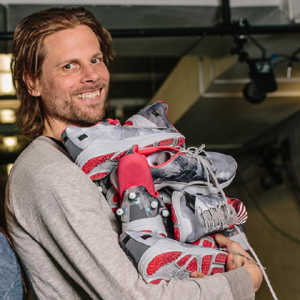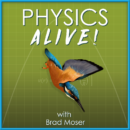The Physics Alive Podcast

Episode #39
The Physics Rundown on Running with Wouter Hoogkamer
Wouter Hoogkamer, Assistant Professor at the University of Massachusetts, Amherst, is the director of the UMass Integrative Locomotion Lab. He studies human locomotion, integrating neurophysiology, biomechanics and energetics. In today’s episode, learn about his research on running economy and breaking the two-hour marathon mark. Plus, we’ll take his expertise and distill it down to some experiments and concepts that we can use in the high school and college intro physics classroom.
Today's Guest:
Wouter Hoogkamer
Wouter Hoogkamer, Assistant Professor at the University of Massachusetts, Amherst, is the director of the UMass Integrative Locomotion Lab. He earned a Ph.D. in Biomedical Sciences at KU Leuven, Belgium, an M.S. in Human Movement Sciences at VU University Amsterdam, Netherlands, as well as an M.S. in Civil Engineering there.
Wouter’s research description: “Our lab uses a comprehensive approach to study human locomotion, integrating neurophysiology, biomechanics and energetics. Our work covers the full health spectrum, from the neuromechanics of split-belt walking in individuals with neurological disease to the biomechanics and energetics of elite marathon runners. We focus specifically on how surface and footwear properties can be used and optimized to improve gait rehabilitation and sports performance.”
Learn more about Wouter and his work:
Episode Notes and Resources
The University of Massachusetts Integrative Locomotion Lab (UMILL)
National Biomechanics Day
Video analysis software
Force plates
Selected articles written by or quoting Wouter Hoogkamer
- Breaking the Two-Hour Marathon Barrier (2017)
- A Comparison of the Energetic Cost of Running in Marathon Racing Shoes (2018)
- The Benefits of Drafting (2020)
- Altered Running Economy Directly Translates to Altered Distance-Running Performance (2016)
More articles at Media Coverage on the UMILL website
